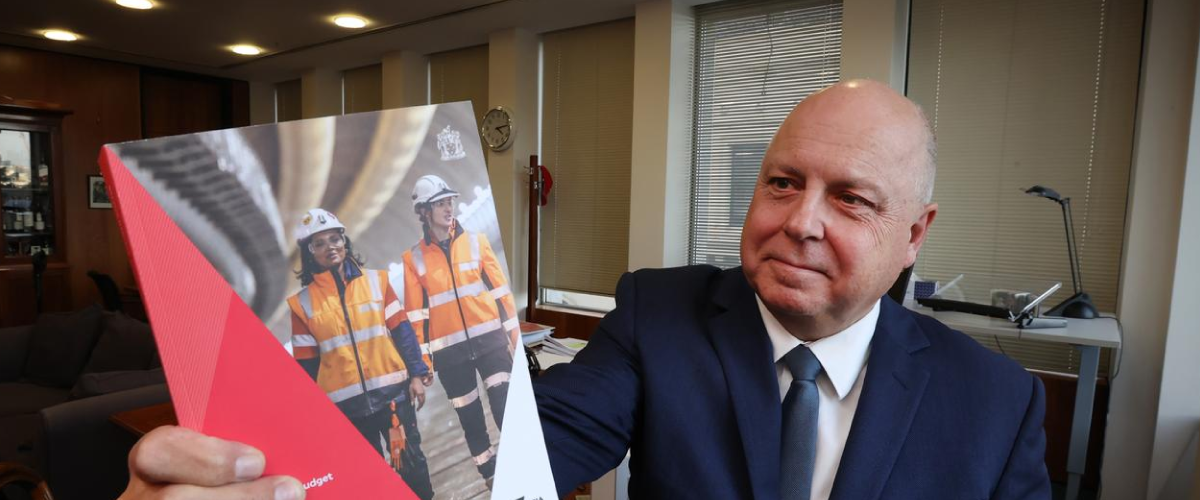Pharmacists crucial to Victorian hospital and healthcare workforce investment
The Society of Hospital Pharmacists Australia (SHPA) has welcomed investment of $4.9 billion into Victoria’s hospitals and healthcare system and workforce announced in the state’s budget, calling for commensurate funding into key hospital pharmacy positions to ensure benefits to patient safety and care and system capacity are realised.
Announced yesterday by Victorian Treasurer, The Hon. Tim Pallas MP, Budget 2023-24 includes funding for important healthcare infrastructure and equipment upgrades, $103 million to help Victorians access highly-specialised therapies and genomic testing for people with rare diseases and cancer, $20 million for a 12-month pilot program enabling community pharmacists to provide treatment for minor illnesses and infections, vaccinations and reissued contraceptive prescriptions and $35 million for additional paediatric cancer research and clinical care, including pharmacogenomics – as recommended in SHPA’s Pharmacy Forecast Australia 2022.
On behalf of Victorian members and their colleagues, SHPA President Tom Simpson welcomed the $201 million invested into the Victorian healthcare workforce, but noted the importance of funding across professions.
‘It is always heartening to see much-needed hospital and healthcare positions funded, but whole care teams need to be fully staffed, including crucial hospital pharmacy positions.
‘Hospital pharmacists play a crucial role in ensuring the safe and quality use of medicines in Victorian hospitals and provide clinical pharmacy services to Victorians when they are most unwell.
‘Medicines are our most common healthcare intervention and many confer high risk in the hospital setting and on discharge, requiring specialty pharmacist expertise to ensure their safe and timely use.’
Mr Simpson says the pharmacy workforce investment shortfall is particular acute as the state emerges from the worst years of the pandemic.
‘Hospital pharmacists were instrumental to the Victorian Government’s COVID-19 pandemic response through supporting and providing resources to COVID-19 wards and clinical services, vaccine clinics, telehealth services, outreach programs and Better at Home.
‘Having provided many additional services to their communities during COVID-19 while maintaining regular services, hospital pharmacy departments have faced very challenging fiscal circumstances with widespread medication shortages and changing market conditions increasing the cost of securing medicines for Victorians.
‘SHPA was pleased to see the recent announcement of 200 additional pharmacists to be employed by public hospital pharmacy departments to achieve pharmacist-to-patient ratios published in SHPA’s Standards of Practice for Clinical Pharmacy Services, but specific funding needs to be set aside to support recruitment.
‘Realising these new positions will bring safer and more efficient pharmacy care to Victorians, support public health services to meet National Safety and Quality Health Service Standards and replenish a depleted workforce when it is needed most.’
‘While the additional pharmacist positions will allow the Victorian health service to catch up to best practice across its hospital system, it’s equally vital that new and expanded hospital services continue to embed hospital pharmacists in every setting, not just doctors and nurses, in accordance with the evidence-based patient ratios of the clinical practice standard.’
Mr Simpson says the Victorian Budget’s renewed commitment to Victoria’s Virtual Emergency Department can be bolstered by the inclusion of pharmacists with specialised emergency medicine expertise.
‘Emergency Medicine Pharmacists have the skills and knowledge to strengthen these virtual first responders, helping ensure the very best medicines advice reaches people in the community before their health deteriorates.
‘This is the core business of our hospital pharmacists and technicians, especially important given there are 250,000 medication-related hospital admissions each year: ensuring Australians receive the safest, most effective medication treatment whether in a hospital bed or their home, reducing length of stay and preventing re-admission.’


